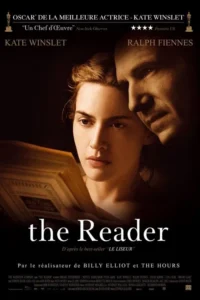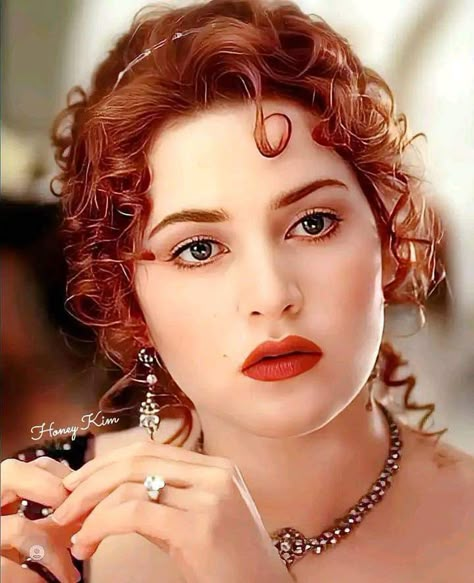Three films. Three women. One extraordinary actress

By Kalpana Pandey
Kate Winslet’s cinematic journey is a remarkable testament to artistic diversity, fearless choices, and a profound commitment to her craft. Since her debut in the 1994 psychological drama Heavenly Creatures, Winslet has consistently demonstrated a willingness to embrace complex, challenging roles rather than simply chasing commercial success. Across her career, she has transcended the conventional boundaries of stardom to inhabit her characters with a rare authenticity—never merely acting, but truly living each role.
Her breakthrough came with James Cameron’s epic romance Titanic (1997), in which she portrayed Rose DeWitt Bukater, a young aristocratic woman trapped in rigid social conventions and an unhappy engagement. The film’s massive global success catapulted Winslet to international fame virtually overnight. In India, where English-language films had traditionally enjoyed a niche audience, Titanic struck a unique chord—Kate Winslet became the first English actress to capture the hearts of millions with genuine affection and admiration. Yet, unlike many stars who leverage blockbuster success to pursue similar high-profile projects, Winslet charted a different course. She deliberately sought smaller, more nuanced films, eager to explore new emotional landscapes and complex human experiences.
In India, her popularity blossomed beyond Titanic’s commercial appeal. Urban youth and cinema connoisseurs revered her not only for her beauty but for the sincerity and emotional depth she brought to every role. With the advent of streaming platforms and international film festivals, Winslet’s reputation evolved further. Films such as Eternal Sunshine of the Spotless Mind (2004), The Reader (2008), and Steve Jobs (2015) highlighted her ability to deliver subtle, intense performances that resonated deeply with academic, artistic, and cinephile communities worldwide. In India today, her legacy is celebrated with respect and admiration—not just for her stardom but for her carefully selected roles and the authenticity she embodies on screen. Titanic remains a beloved classic, The Reader continues to be a festival favorite, and her interviews and acceptance speeches circulate widely on Indian YouTube channels, inspiring new generations of film lovers.
Among her vast oeuvre, three films stand out as exemplars of Kate Winslet’s extraordinary range and skill, each peeling back layers of human complexity through diverse narratives and demanding roles.
The Reader (2008): A Haunting Exploration of Guilt and Redemption
Adapted from Bernhard Schlink’s acclaimed novel and directed by Stephen Daldry, The Reader is a haunting, multilayered drama set in post-World War II Germany. It tells the story of Michael Berg, a 15-year-old boy who embarks on a secretive and intimate relationship with Hanna Schmitz (played by Winslet), a 30-year-old woman shrouded in mystery. Their bond is tender yet fraught with silence and complexity; Hanna’s habit of having Michael read aloud to her becomes a poignant ritual that underscores her hidden vulnerabilities.
Years later, as Michael attends a war crimes trial, he is shocked to see Hanna accused of Nazi atrocities—specifically for her role as a concentration camp guard implicated in the deaths of hundreds. The narrative unfolds across two timelines: the passionate affair of the 1950s and the moral reckoning of the 1960s courtroom drama. Central to the story is Hanna’s illiteracy, a secret she guards fiercely, which ultimately unravels her persona and invites both condemnation and sympathy. In prison, Hanna’s journey toward literacy, aided by tapes Michael sends of himself reading, quietly rekindles their fractured connection.
Winslet’s portrayal of Hanna is nothing short of masterful. She embodies a woman at once rigid and vulnerable, simultaneously evoking contempt and pity. Her steely exterior—marked by stern posture and clipped language—conceals layers of pain and isolation. The courtroom scenes, where Hanna’s illiteracy is exposed and she refuses to defend herself against false accusations, are riveting; Winslet’s expressions convey a complex cocktail of shame, defiance, and resignation without uttering a single word. As Hanna ages and adapts to prison life, the subtle transformation in Winslet’s performance—captured through small gestures and quiet moments—evokes profound empathy.
Her meticulous preparation for the role included studying the behavior of elderly women and mastering a German accent, lending an authentic texture to her performance. She also delved deeply into Holocaust testimonies to balance historical truth with psychological nuance. For this courageous and nuanced portrayal, Winslet was rightly awarded the Academy Award for Best Actress in 2009, cementing her reputation as an actress unafraid to navigate morally ambiguous and emotionally charged terrain.
Revolutionary Road (2008): The Dark Underbelly of the American Dream
Directed by Sam Mendes and adapted from Richard Yates’s seminal 1961 novel, Revolutionary Road is a searing portrait of suburban despair and the shattering of mid-century American optimism. The film follows Frank (Leonardo DiCaprio) and April Wheeler (Kate Winslet), a young couple suffocating under the weight of societal expectations and personal disillusionment. Frank’s mundane office job and April’s aborted acting career have left them trapped in roles they never wanted.
April’s dream of moving to Paris symbolizes a desperate bid for freedom and happiness—a dream initially embraced by Frank but ultimately crushed by fear and social conformity. Their relationship unravels through a series of volatile arguments and silent resentments, culminating in April’s tragic decision to terminate her third pregnancy, a choice that leads to her untimely death. The film closes on Frank’s retreat into emotional numbness, a haunting depiction of defeat.
Winslet’s portrayal of April Wheeler is a tour de force of emotional intensity. From the beginning, she captures April’s restless dissatisfaction, masking despair beneath a radiant smile. Winslet’s nuanced physicality—her jittery movements, clenched fists, and sharp gaze—speaks volumes about the character’s inner turmoil. The film’s most wrenching scenes are the explosive confrontations with Frank, where Winslet conveys rage, vulnerability, and heartbreak with raw authenticity. Her depiction of April’s quiet resolve during the abortion scene is both devastating and profoundly human, relying on minimal dialogue to express complex emotions.
Her on-screen chemistry with DiCaprio, rekindling the dynamic that made Titanic unforgettable, adds emotional weight and realism to their collapsing marriage. For this powerful performance, Winslet received the Golden Globe Award for Best Actress, further affirming her place among the most gifted actresses of her generation.
Titanic (1997): A Timeless Tale of Love and Liberation
Titanic, directed by James Cameron, remains one of the most iconic films of modern cinema, weaving a historical romance against the tragic sinking of the RMS Titanic. Winslet’s Rose DeWitt Bukater starts as a constrained upper-class woman bound by rigid societal norms and an arranged engagement she despises. Her transformation—sparked by the adventurous Jack Dawson (Leonardo DiCaprio)—is a story of self-discovery and liberation set amidst disaster.
The film’s narrative, told through Rose’s nostalgic recollections, explores themes of class struggle, personal freedom, and empowerment. Winslet’s performance is suffused with emotional intensity—from Rose’s suppressed longing and frustration to her eventual embrace of independence. Her evolving body language—from the stiff formality of high society to the liberated, open posture as she chooses her own path—is a visual metaphor for her character’s growth.
Titanic’s global success, especially in countries like India where English films had limited penetration, introduced Kate Winslet to a broad, diverse audience. Yet, despite this newfound fame, she resisted being typecast and continuously sought roles that challenged her, enriching her career with a blend of commercial and artistic triumphs.
A Comparative Reflection on Winslet’s Iconic Roles
Examining Titanic, The Reader, and Revolutionary Road reveals a fascinating tapestry of human relationships, transformation, and societal pressures, told from diverse perspectives. While Titanic is a sweeping historical romance focused on empowerment and social rebellion, The Reader offers a deeply intimate, morally complex meditation on guilt, shame, and the haunting legacy of history. Meanwhile, Revolutionary Road is a sobering domestic tragedy dissecting the American Dream’s illusions and the stifling confines of gender roles and conformity.
Despite their narrative differences, all three films centrally explore the experiences of women trapped in oppressive situations—Rose in her aristocratic cage, Hanna in her secrets and past, and April in her suffocating suburban life. Each character’s struggle for liberation—whether through love, literacy, or escape—resonates deeply, highlighting Winslet’s unique ability to give voice to women’s emotional and psychological battles.
The Mastery Behind Winslet’s Craft
What distinguishes Kate Winslet as an actress is her unparalleled emotional authenticity and versatility. Whether expressing Rose’s youthful grief, Hanna’s layered shame, or April’s simmering despair, she eschews melodrama for subtlety, allowing her characters’ internal lives to unfold organically. Winslet’s mastery of physicality—her posture, gestures, and facial expressions—adds powerful subtext to her performances, making even the smallest movement meaningful.

Her eyes, in particular, are a window to her characters’ souls, often conveying more than words ever could. Vocally, she adapts seamlessly—from Rose’s refined accent to Hanna’s rough German tones and April’s tense sharpness—enhancing credibility and emotional impact. Her dedication to authenticity is legendary: enduring freezing water for Titanic, immersing herself in Holocaust survivor accounts for The Reader, and researching 1950s gender dynamics for Revolutionary Road.
Her on-screen chemistry, notably with Leonardo DiCaprio across two major films and with Ralph Fiennes in The Reader, amplifies the emotional resonance of her performances.
The views expressed in this article are solely those of the author and do not necessarily reflect the opinions or views of this Magazine. The author can be reached at 9082574315/[email protected]

Leave a Reply